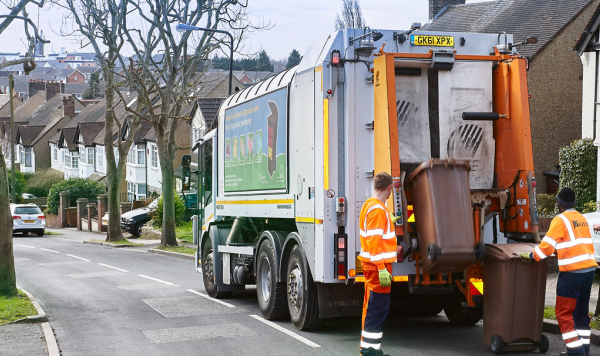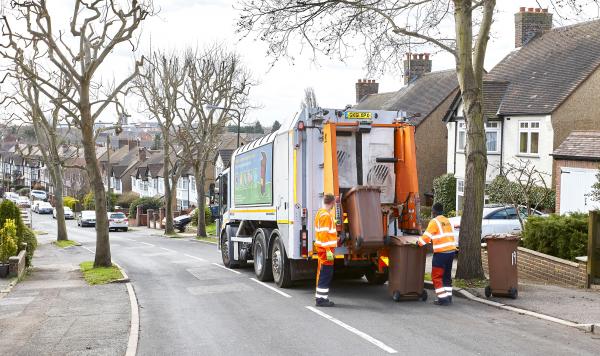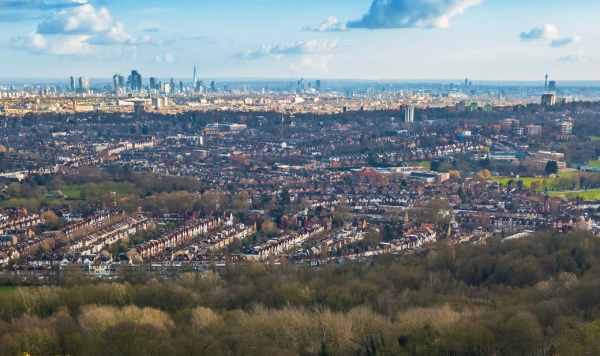Request
North London Trades Union LESE TUC ESJTN deputation to the NLWA AGM
Dear Cheryl,
We are writing to request a North London Trades Union and LESE TUC Environmental Sustainability and Just Transition Network deputation to the NLWA AGM on Thursday 24 June 2021 to discuss the following.
London, East and South East TUC AGM has recently voted for a motion to urge the North London Waste Authority (NLWA), the GLA, the UK government: Secretary of State and shadow Secretary, to call for a pause and review of the construction of the new incinerator at Edmonton, the North London Heat and Power Project.
The conference discussion and demands included requesting a full and statistically reliable, independent environmental and social impact assessment of the project - this in the light of the local councils' emergency commitments, the UK governments 2050 net-zero, the expected change in waste steams due to increase recycling rates, the potential to use renewable energy rather than burning waste to heat alternatives to incineration and landfill, the increased risks of particulate pollution in the context of the coronavirus crisis, and a review of best practice from other cities taking into account new technologies being developed for reprocessing domestic and commercial waste.
Given that LESE TUC has passed policy on the urgent need for the expansion of climate and green jobs and is asking for a London Just Transmission Commission, we would like to ask about how the authorities are engaging or plan to engage with the trade unions, trades councils and communities on the creation and expansion of the climate jobs and green jobs we need for the future including those in the key area of waste management and the move towards a more circular economy.
We look forward to meeting with you to address these points and the potential for modular options and MRFs for waste and plastic sorting. The person who will address the meeting is
Fliss Premru, TSSA and Co-chair of the London and South East TUC Envrionmental Sustainability and Just Transition Network
Participants are:
Phil Lewis, GLATCU, Camden Unison
Karel Schling, Unite Community
Dr Coral Jones, Doctors in Unite
Paul Power Haringey TUC and Vice Chair Haringey NEU
Thank you for your time and for this opportunity to meet with the NLWA.
Kind regards,
Fliss Premru
Co-chair, LESE TUC Environmental Sustainability and Just Transition Network
Response
14 July 2021
1b Berol House, 25 Ashley Road Tottenham Hale N17 9LJ
enquiries@nlwa.com
nlwa.gov.uk
Ms Felicity Premru Via email
Dear Ms Premru,
Thank you for taking the time to raise your deputation to the North London Waste Authority (NLWA)
meeting on Thursday 24 June 2021.
I appreciate you bringing forward your views in relation to the North London Heat and Power Project
(NLHPP) and setting out the issues you wanted to draw to Members’ attention. The Authority Members
take seriously their responsibility to protect public services, public health, and the environment,
and these matters have been carefully considered in developing the NLHPP.
As promised in the meeting, I would like to take this opportunity to respond in writing and assure
you that all aspects of the NLHPP are thoroughly considered by the Authority and have been tested
and approved through an independent public inquiry process. This letter provides more detailed
information on the project in relation to the topics you have raised.
In your deputation you asked that NLWA pause and review the NLHPP on environmental grounds in the
context of COP26.
The NLHPP is a vital infrastructure project which supports our aim to increase recycling and stop
waste from rotting in landfill. To delay the NLHPP would undermine therefore our efforts to tackle
the Climate Emergency, which is at the forefront of discussions for COP26 this year. No other
option works at the scale we require, and none offer the same compelling financial, social and
environmental benef its. For these reasons we cannot pause the Project.
The impacts of not building the NLHPP would be detrimental to north London residents and also in
our efforts to tackle the Climate Emergency. It would deny north London’s residents state of the
art recycling facilities. It would deny residents a safe, clean and low-carbon solution for
managing their waste in the Climate Emergency. It would deny hundreds of life changing
apprenticeship and training opportunities for local people. And it would deny local homes and
businesses the chance to benefit from low-carbon heating and hot water.
The Project has already been thoroughly reviewed and all the considerations raised by deputations
have been carefully considered over many years. The decision to proceed with the Project followed
several years of comprehensive environmental analysis, as well as an extensive two-stage public
consultation, and careful consideration of the alternative options. As part of the DCO process,
NLWA undertook a full Environmental Statement for the project, which entailed 2,000 pages of
careful analysis of a range of environmental, social and technological factors. This Statement was
subject to an Examination in Public and recommended for approval by the Planning Inspectorate.
In your deputation you raised your concerns around air quality, with specific reference to
particulate pollution.
As a public authority, our key priority is to protect the health of our residents . For this
reason, our facility will be the first of its kind in the UK to be fitted with the most modern specifications,
using the world’s best technology to capture and carefully filters emissions, making it the safest
and cleanest in the country.
There is clear scientific consensus that modern facilities like ours make an exceedingly small
impact on pollution, and do not present a significant risk to public health. This is the
unambiguous position of Public Health England, supported by a significant body of scientific
evidence.
When air quality and potential health impacts are discussed, it is usually in reference to the
presence of Nitrogen Oxides (NOx) and particulates released into the atmosphere. In relation to
particulates, the ERF will use best-in-class, proven technology for controlling particulates.
Thousands of baghouse filters will be employed to capture particulates, including PM10, PM2.5 and fine particles. This
proven technology has been identified by the UK’s Air Quality Expert Group as being particularly
effective for controlling particulates and ultrafine particles (UFPs). An independent study from
the University of Birmingham in 2016 concluded that, after dispersion and dilution, concentrations
of UFPs are typically indistinguishable from levels that would occur in the absence of an EfW.
In relation to NOx emissions, the ERF will be fitted with a higher level of emission controls than
most other energy from waste plants in the UK. It will be the first in the UK to operate using
Selective Catalytic Reduction (SCR) to reduce NOx emissions to well below the stringent
requirements of the emission limits set by the European Union in the Industrial Emissions Directive
(IED).
The heavily filtered emissions will be released at height from the stack, which ensures that the
pollutants will disperse and dilute in the atmosphere, and therefore be present in exceedingly
small quantities at ground level. For the vast majority of the year, the contribution of the ERF to
NOx at ground level will be effectively zero. It would only be measurable for a few hours a year,
and this will only be at 2% of the relevant air quality standard.
In your deputation you asked how NLWA is engaging with trade unions to create green jobs.
The Project is actively engaging with trade unions to ensure our on-site teams are working in the
safest environment possible and are treated fairly and equally. We are proud to be registered with
the National Agreement for the Engineering Construction Industry, which establishes a partnership
with trade unions to promote positive working practices and cultures. These mean that everyone
working on the Energy Recovery Facility contract are paid at or above the London Living Wage.
Our Project is a major part of the green recovery in Enfield, and part of Enfield Council’s plan to
promote high-tech industries and jobs in Edmonton.
We’ve committed to 25% local employment through the unlocking of jobs and apprenticeships for north
London residents to attract new talent into the construction industry, as well as 10% local
expenditure across our green infrastructure project.
So far, our job-generating project has created 16 apprenticeships in roles covering quantity
surveying, ground and civil engineering and business management. Over the course of the Project
we’ll be creating at least 100 of these opportunities for local young people where they will learn
first-hand the innovative construction methods that can be used on a project of this size and
complexity.
A number of our apprentices working to build the new Resource Recovery Facility (RRF) have already
been involved in a pioneering piling technique which has reduced the embodied carbon of the
original scheme by between 10-16%. Other apprentices working on the sewer diversion works have been
involved in a unique approach, resulting in cutting the water required by 65%.
In your deputation you requested that NLWA prioritises reuse, repair and recycling of materials.
NLWA and north London boroughs share your enthusiasm for reuse, repair and recycling.
As a public authority, we have a duty to teach and encourage residents about the waste hierarchy
and drive the principles of the circular economy. NLWA has the most extensive waste prevention
activity of any waste authority in London and our management strategy champions the circular
economy and sets a benchmark for other waste authorities.
Our award-winning waste prevention programme sets a benchmark in London for waste prevention and
recycling. We run a number of wide-ranging activities with north London residents including:
• One of the most extensive recycling collection services in the country, accepting the widest
possible range of materials
• Over £93,000 was awarded to boroughs to trial interventions aimed at combatting recycling
contamination or increasing dry recycling
• £60,000 in funding to community groups as part of NLWA’s Waste Prevention Community Fund
• Significant investment in a new trial to recycle north London’s old mattresses which is
expected to extract 700 mattresses from the waste stream each week
• Our online Waste Prevention Exchange conference, which in 2020 secured the most ever
attendees (215 people)
• 21 Facebook and Instagram Live events through the year, as well as 16 Q&A sessions, f ocusing
on recycling and waste prevention
• An innovative reusable nappy subsidy of £54.15 per baby – which has resulted in an estimated
1,000 tonnes of nappy waste being avoided
• A network of RRCs across north London, which recycled 72% of materials. Construction
commenced on a brand-new centre at the Edmonton EcoPark
In addition to our programme of activities, NLWA has extensive infrastructure across north London
to support higher recycling rates. This includes Materials Recycling Facilities run by our
contractors, which sort dry collected recyclables into separate waste streams so they can be made
into new products. We are trialling at a new facility in Wembley an innovative picking line to
extract even more material from waste, which would otherwise be sent to landfill. We have a
network of public reuse and recycling centres, including the Barrowell Green Recycling Centre in
Enfield. The NLHPP will enhance this network of existing infrastructure. We are building a
brand-new public reuse and recycling centre for the benefit of our residents, enabling them to
bring their recycling directly to the EcoPark for the first time ever, as part of our drive to
achieve 50% household recycling rates. We’re also building a new Resource Recovery Facility with
capacity to manage up to 135,000 tonnes of recyclable materials every year including plastic, wood
and metal. As part of the NLHPP, a new visitor and education centre is being built known as EcoPark
House where the local community will be able to learn more about waste management and recycling.
NLWA’s initiatives to encourage residents to recycle more is helping to shape the process for reuse
and recycling of plastics not only in north London, but across the rest of the UK. The volume of
plastic recycling we collect has enabled our recycling partner Biffa to invest in world-leading
recycling technology, which the rest of the country is now benefitting from. Biffa’s new County
Durham plant uses the world’s most advanced technology to recycle the equivalent of 1.3bn plastic
bottles a year.
If you have any further questions about the Project or require any clarifications, I would be happy
to answer them. You may also find useful the extensive Frequently Asked Questions on our project
website, which cover the themes you raised in your deputation. I would like to thank you again for
your interest in the NLHPP and for submitting your deputation last month.
Yours sincerely,
Cllr Clyde Loakes
Chair, North London Waste Authority




